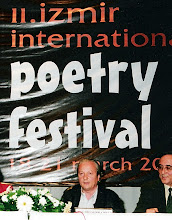 http://www.youtube.com/watch?v=3yoTQSKsfDA
http://www.youtube.com/watch?v=3yoTQSKsfDAEl ideario socialista: La Propaganda y sus fantamas.
El 20-Noviembre es para España la fecha de la muerte de Franco (1975), el dictador fascista que gobernó casi 40 años, luego de ganar la Guerra Civil que desangró el país durante tres años. Esa fecha fue siempre el puntal de algunas maniobras nostálgicas de la ultraderecha española, un sector cada vez más reducido a medida que avanzaban los años de la democracia, 1977 en adelante. Hoy en día, no pasan de ser un grupo minoritario, disperso entre algunas patotas de fanáticos de futbol. Y entre los jóvenes españoles, menores de 25 años, ya nadie se acuerda qué es el 20-N, y a casi nadie de ellos le interesa, ni ha visto ni reconoce el monigote antiguo de Franco.
Para nosotros, los mayores de 40 ó 50, la cosa cambia, la historia está ahí, se conoce y se palpa a cada paso. Durante los fervorosos años de la Transición Española, 1975-1977, cada uno de nosotros fue testigo de un cambio vertiginoso de la sociedad y las ideas. Muerto el dictador, aquél 20-N de 1975, muy pronto el espíritu democrático dominó en todos los ámbitos de la sociedad, desde la cultura y el arte hasta las Instituciones.
Pero todavía faltaba la rehabilitación de la izquierda democrática, su entrada en el gobierno y en la cosa pública.
La propaganda que utilizó el socialismo de entonces para llegar al poder, con Felipe González en 1982, consistió en desplazar lentamente la imagen de la ultraderecha, del fascismo o el franquismo, a todo el espectro político que no fuera el solcialismo o el comunismo, y esta lenta pero implacable difamación del pensamiento centrista, liberal, católico, y conservador, dió sus frutos con la hábil campaña que con el lema "por el cambio" llevó a González al poder el 28Octubre de 1982, con una mayoría absoluta de 202 diputados, no superada hasta el momento.
El ambiente ya estaba preparado para un cambio en la política, para que los sectores de centro izquierda ocuparan el poder, pero nadie podía evaluar la dimensión que esta propaganda tendría en el inconsciente colectivo de los españoles, hartos del franquismo y de la postergación de la entrada de España en la modernidad europea.
Luego de esta victoria aplastante, se disolvió el partido centrista, la UCD, dejando a la oposición completamente desarticulada y falta de cohesión.
El camino ha sido largo desde entonces, y Zapatero, aquel joven simpatizante que escuchaba arrobado los discursos de Felipe González en los mítines partidarios de entonces, está ahora en el poder. Quién más indicado que él para hacer de la propaganda de González, el caballo de Troya de su gobierno. Toda la campaña del PSOE de Zapatero está sostenida en esa propaganda, aún más demagógica que su maestro. Todos los ministros y amigos de su entorno repiten los dictados de la difamación constante de toda la crítica a su partido, con la muletilla de "derecha fascista".
Desde hace cinco años que en España gobierna el PSOE, y enfrente sólo ve el fantasma de "la derecha fascista", epíteto que sirve para todo y para todos, ya sean liberales, independientes críticos, religiosos, militares críticos, conservadores, parados que se manifiestan contra el gobierno, camioneros que hacen huelgas, etc. Todo parece que está manipulado por una omnipotente "derecha fascista" que absorbe a todo aquél que se anima a criticar al gobierno.
No sé cuánto tardará este "cuco" en desvanescerse del inconsciente colectivo. Los miedos de la gente por el pasado trágico, se alimentan con las excavaciones de tumbas, con las amenazas de la vuelta al caos que fue la Guerra Civil Española.
Y el pueblo trabajador, ese que tiene a su cargo no sólo a sus hijos, sino también a sus padres ancianos, está profundamente deprimido por una crisis que no viene de afuera solamente, sino que se ha hecho desde la corrupción inmobiliaria, la disgregación de la mediana industria y de la pequeña empresa, que son el verdadero motor de valor económico-social de los pueblos, todo esto fomentado por la falta de proyectos de desarrollo del gobierno, ocupado desde hace cinco años en labores de.. propaganda.
La crisis estaba ahí, desde hace tiempo se la veía venir.
La cúpula del gobierno lo sabía, pero callaba para no despertar la alarma social, y con ella la pérdida de credibilidad de las consignas socialistas: El Cuco de la derecha que vuelve, los malos que critican y son todos fascistas, las mentiras de los que nos atacan cuando hacemos un cambio en España que será para siempre... etc.
Ahora, luego de todo lo que vemos en estos días, faltaba el grito de "quemar los libros de la derecha" que una vieja dirigente comunista y socialista, Cristina Almeida, dijera ayer día 20 en un acto en apoyo a Garzón en el Cículo de Bellas Artes de Madrid.
A esta abogada su locuacidad demagógica otra vez le hizo decir lo que piensa, y quizás hasta contenta de haberlo dicho, ya que así se extiende la disputa sobre el pasado, se aumenta el miedo en el inconsciente colectivo al "abismo de afuera de la izquierda" que tanto rédito les da a los socialistas desde hace 25 años.
Pero el insulto al ciudadano y a la democracia es aún peor, porque tienta a la opinión pública a ver sobre bases irracionales la falta de futuro que esta crisis provoca en la gente.
Siempre se ha demostrado que la base irracional en las ideologías sociales y políticas, conduce al fascismo, fascismo de izquierdas o de derechas, pero fascismo.
El mismo fascismo que tanto atacan resulta que lo llevan dentro... Y les crece todavía.
--
©ClaudioSerraBrun, 21Noviembre2008.
Desde Valencia-España, al mundo hispano.
Puede reproducir los textos propios, sólo citar la Pagina, la Fuente y el Autor:
Valencia-España / BuenosAires-Argentina
--



